Retro Replay Review
Gameplay
King’s Knight delivers a fast-paced top-down shooting experience that stands out in the NES library. Players control four distinct heroes—Ray Jack the Knight, Kaliva the Wizard, Barusa the Monster, and Toby the Thief—each offering unique strengths in attack, magic, defense, and speed. As you progress through the first four stages, your goal is to collect and upgrade shields, boots, swords, and spell icons, all hidden under mountains, rocks, and houses. The accumulation of these power-ups is vital, as they directly impact your performance in the climactic final stage.
(HEY YOU!! We hope you enjoy! We try not to run ads. So basically, this is a very expensive hobby running this site. Please consider joining us for updates, forums, and more. Network w/ us to make some cash or friends while retro gaming, and you can win some free retro games for posting. Okay, carry on 👍)
The destructible environment adds a layer of exploration and strategy to the gameplay. Nearly every obstacle can be shot away to reveal hidden items or alternate paths, encouraging thorough exploration rather than a simple run-and-gun approach. Enemies swarm in waves, requiring quick reflexes and a careful balance between offense and defense. Kaliva’s ability to jump over hazards, for example, can be a lifesaver when Barusa’s high defense doesn’t suffice.
One of the most engaging mechanics is the necessity of keeping all four heroes alive until the end. If any character falls before the final boss battle, certain barriers become impassable, demanding a restart of the level or even the entire game. This design choice amplifies tension, as players must juggle the health and positioning of each hero while fending off relentless monsters. For solo players, it’s a test of multitasking, while hypothetical co-op play would hinge on seamless teamwork.
Graphics
Despite the hardware limitations of the NES, King’s Knight sports vibrant sprite work and a colorful palette that brings its medieval fantasy world to life. Each hero is rendered with just enough detail to be distinguishable, and their attack animations—sword swings, magic blasts, claw strikes, and swift dashes—feel punchy and clear on the screen. Enemy designs range from basic goblins and bats to more elaborate mini-bosses, providing visual variety across stages.
The game’s stages showcase distinct environments: dense forests, icy caverns, rocky plateaus, and finally, the imposing castle stormed by the dragon’s minions. Background elements like swaying trees or flickering torches add depth to the scrolling playfield. While the frame rate occasionally stutters when too many sprites appear at once, these moments are rare and don’t significantly hamper the experience.
Destruction effects—rocks crumbling, houses collapsing, and shields shattering—are surprisingly detailed for the era, reinforcing the sense of impact with each shot. Though the overall resolution is limited, the imaginative use of color and animation keeps the action readable, ensuring players can track all four heroes and numerous foes without confusion or visual clutter.
Story
King’s Knight follows a classic damsel-in-distress narrative: a malevolent dragon has kidnapped a princess, plunging the kingdom into chaos. To restore peace, four unlikely allies embark on a perilous quest to rescue her and vanquish the beast. While the in-game storytelling is minimal—limited to brief opening text and an epilogue—the manual and box art fill in the backstories of Ray Jack, Kaliva, Barusa, and Toby, lending each hero a distinct personality.
The simplicity of the plot works in its favor, providing just enough motivation to push players through increasingly difficult levels. There’s no convoluted lore or branching dialogues—every battle swing and spell cast propels the heroes closer to Princess inhibition. In an era before cinematic cutscenes, this straightforward narrative structure keeps the focus squarely on gameplay while still evoking familiar fantasy tropes.
Comparing it to modern RPGs or action-adventure titles, King’s Knight’s storytelling might feel rudimentary. Yet there’s a nostalgic charm in its brevity: the thrill of uncovering the princess’s whereabouts, the dramatic reveal of the dragon’s castle, and the satisfaction of reuniting savior and captive all hinge on simple, time-tested beats. For players seeking deep narrative complexity, it may fall short—but as a backdrop for engaging action, it hits the mark.
Overall Experience
Playing King’s Knight today is a nostalgic trip into the early days of Square Soft’s legacy. Its tight shooting mechanics, memorable cast of heroes, and strategic power-up system combine to create a gameplay loop that remains surprisingly addictive. Though short by modern standards, the game’s challenging difficulty curve and requirement to keep all four characters alive extend its replay value, as players refine routes and power-up strategies on subsequent runs.
The audio design complements the visuals with catchy chip-tune melodies and satisfying sound effects for swinging swords, shooting spells, and shattering obstacles. While the music themes may loop, they capture the heroic mood of each stage—cheery forest tunes, ominous cave motifs, and triumphant castle fanfares—making every new level feel distinct.
Ultimately, King’s Knight stands as a testament to early action-shooter design, blending accessible mechanics with subtle depth. For retro enthusiasts, it offers a historically significant glimpse at Square Soft’s formative work. Newcomers curious about classic NES shooters will find a rewarding, if occasionally unforgiving, adventure. While it may lack the polish of contemporary titles, its fast-paced action, charming presentation, and cooperative challenge (even in theory) make it an enduring classic worth experiencing.
 Retro Replay Retro Replay gaming reviews, news, emulation, geek stuff and more!
Retro Replay Retro Replay gaming reviews, news, emulation, geek stuff and more!
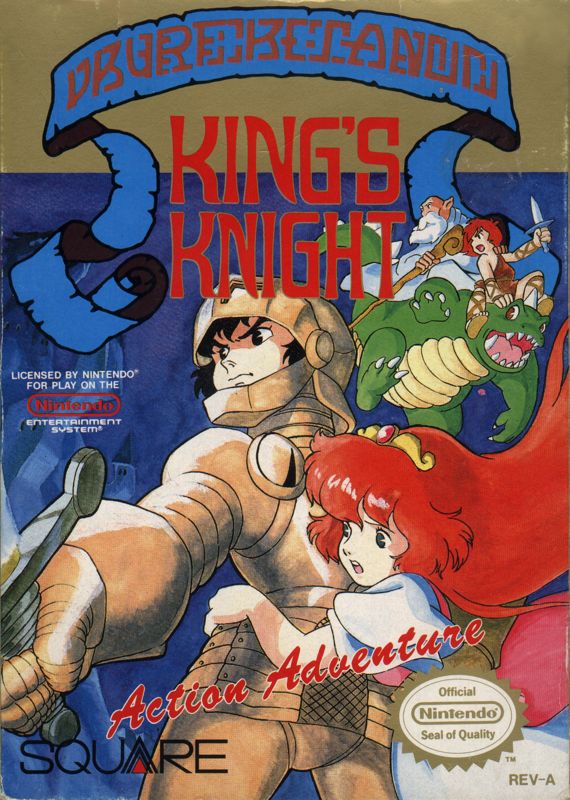

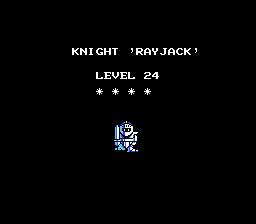
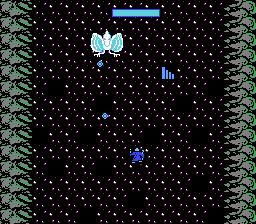
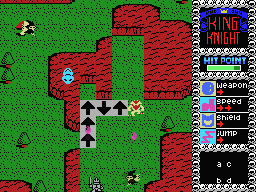
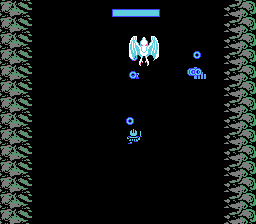



Reviews
There are no reviews yet.